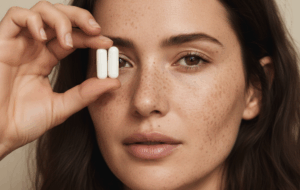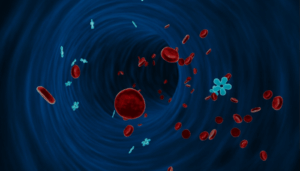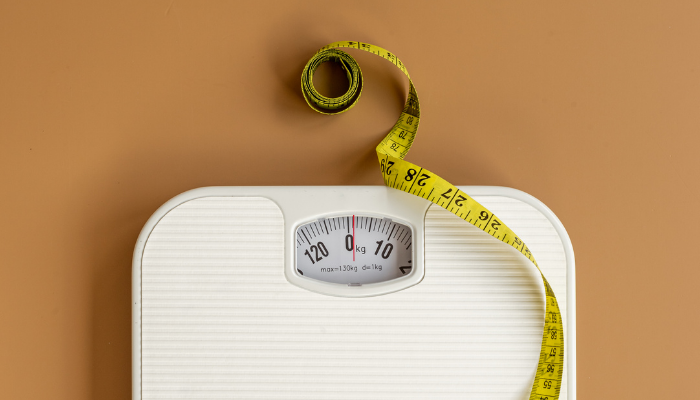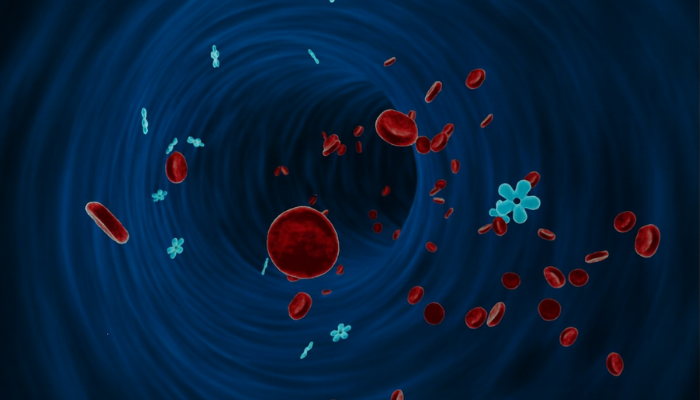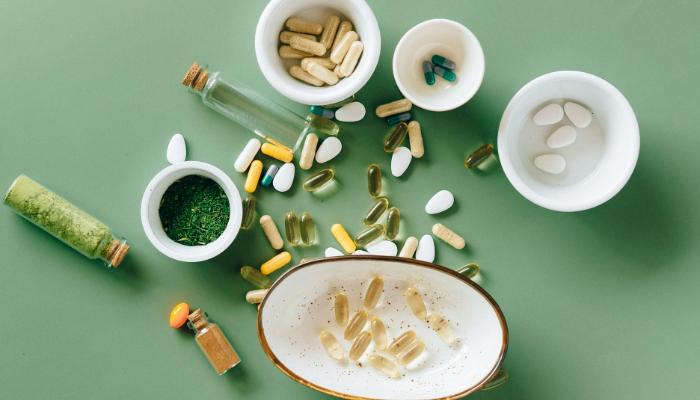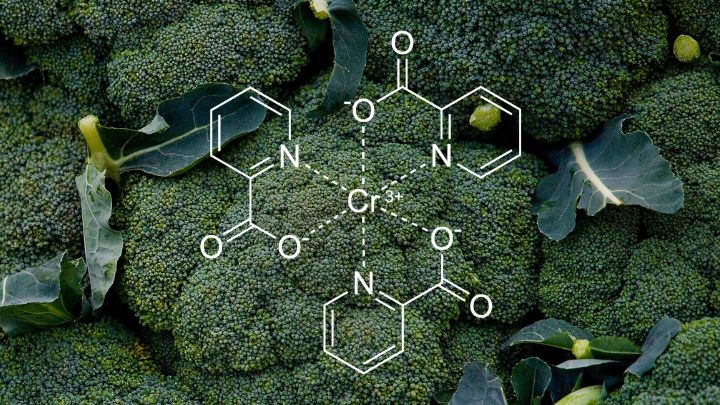Are you looking for a compound that can support your cells, boost your athletic performance, and even protect your brain from injury—all while being a natural ingredient?
Then, let’s talk about Betaine, a powerful nutrient that certainly deserves your attention.
Betaine can help keep your cells healthy and resilient, especially under stress. It can promote detoxification and even play a role in preventing conditions like liver disease and neurodegenerative disorders.
As research grows, Betaine supplements are becoming a key player in the longevity community.
Wondering how this simple compound could transform your wellbeing? Read this Avea article to uncover the full story behind Betaine’s incredible potential in boosting longevity.
FREE anti-ageing guide

- Master the science of rejuvenation.
- Apply proven tips to turn back the clock.
- Transform your health with top longevity specialists.
In this article
What is Betaine?
Betaine, also known as trimethylglycine, is a natural compound derived from amino acid, Glycine.
Basically, in Betaine, three small chemical groups called methyl groups are added to Glycine, which gives it its unique properties.
Where can you find Betaine?
Betaine is a stable constituent that is found in a wide range of plants, animals, and microorganisms.
You can find them in foods like beetroots, spinach, wheat bran, wheat germ, and various aquatic invertebrates.

Your body can also produce Betaine endogenously through the metabolism of choline or obtain it exogenously through dietary intake.
So, whether consumed through food or as a dietary supplement, Betaine is efficiently absorbed and metabolised by your liver and kidneys.
It’s then broken down into dimethylglycine (where one methyl group is removed) and eventually into sarcosine. Both of these metabolites play crucial roles in your body.
Now that we understand what Betaine is, let’s dive into the science that makes it so beneficial.
How does Betaine work in the body?
Remember, your body is a complex system, where every cell plays an important role in maintaining your overall health.
Within this system, Betaine is a key player that can help ensure that everything runs smoothly, particularly under stress.
To truly appreciate the power of Betaine, let’s explore how it works at a cellular level and across various of your organs.
1. Betaine as an osmolyte
Your cells are tiny environments that need to maintain a delicate balance of water and ions to function properly.
Betaine is well-recognised as an organic osmolyte. It helps manage this balance, especially during dehydration or intense physical exertion.
When your cells are at risk of losing water, Betaine can step in to stabilise their water content, preventing shrinkage or swelling that could lead to cell damage.
This regulation is vital for several organs including your kidneys, liver, and brain, where fluid balance is key to proper function.
Betaine can also help maintain the correct structure of proteins within your cells. Under stress, proteins can misfold, leading to dysfunction and disease.
Betaine acts as a chaperone, ensuring proteins retain their proper shape, which is particularly important in the brain. Misfolded proteins are linked to neurodegenerative diseases like Alzheimer’s and Parkinson’s.
2. Methylation and detoxification
Another important function of Betaine in your body is its role in the methylation process.
Methylation is a crucial biochemical process that helps with DNA repair and the production of neurotransmitters—chemical messengers that allow your brain cells to communicate effectively.
Betaine contributes by donating a part of itself (a methyl group), to convert a harmful substance called homocysteine into methionine, an essential amino acid in your body.
High levels of homocysteine are linked to an increased risk of heart disease and other health issues. By helping to reduce homocysteine levels, Betaine supports your body’s detoxification processes and promotes heart health.
3. Supporting liver, kidney, and cardiovascular health
Betaine’s benefits also extend to some of the most critical organ systems in your body.
In the liver, Betaine can help protect against fatty liver disease by promoting fat metabolism and reducing liver fat accumulation.
Similarly, Betaine can support kidney function by helping to manage fluid balance and reducing the risk of kidney stones.
Its cardiovascular benefits are linked to its role in lowering homocysteine levels, which in turn helps prevent heart disease and supports healthy blood vessels.
4. Crossing the blood-brain barrier and protecting cognitive function
The most exciting area of Betaine research, might be its potential in boosting brain health.
Betaine is one of the few substances that can cross the blood-brain barrier, a protective shield that keeps harmful substances out of the brain.
Once inside, Betaine can help regulate neural activity and protect against conditions like neurodegenerative diseases.
Emerging research suggests that Betaine may also support cognitive function, making it a promising candidate for preventing or mitigating brain-related disorders.
The best Betaine supplement: The Vitality Bundle
The Avea Vitality Bundle features a clinically relevant amount of highly available Betaine, with 5 potent antioxidants for synergistic benefits. The Booster also contains olive oil for maximal absorption.
Designed to optimise cellular health, it targets multiple hallmarks of ageing and ensures optimal NAD+ levels when paired with our NMN.
Boost your longevity

- Contains Betaine, Resveratrol, CoQ10, and more.
- Enhance cellular resilience and energy.
- Support brain health and cognitive function.
- Maintain NAD+ levels for overall vitality.
Betaine works synergistically with key ingredients in Booster to enhance overall health. It supports Resveratrol and Pterostilbene’s antioxidant effects, protecting cells from stress.
Combined with Apigenin, Betaine helps maintain optimal NAD+ levels, crucial for energy and cellular vitality. It also complements Nicotinamide (Vitamin B3) by supporting the methylation process, enhancing energy production and reducing fatigue.
Lastly, Betaine enhances Ubiquinol CoQ10’s role in energy production, particularly in the heart and muscles, ensuring robust mitochondrial function. Together, these ingredients create a powerful formula that boosts cellular health, energy, and longevity.
We recommend taking the Booster in the morning with NMN, with or without food, to boost your energy levels throughout the day—thanks to its olive oil content, it’s easily absorbed even on an empty stomach.
Discover the difference between NAD+ v.s. NMN supplements.
How can Betaine boost performance?
Whether you’re a professional athlete or someone who simply enjoys staying active, know that performance and recovery are two sides of the same coin.
To push your limits and achieve your best, your body needs the right support—and that’s where Betaine can help.
See, this remarkable compound can not only help you perform better; it can also protect your brain from the risks associated with high-intensity sports.
Let’s explore how Betaine can be a game-changer in both enhancing athletic performance and protecting your brain.
1. Improved energy metabolism
Your body is a high-performance engine, constantly burning fuel to keep you going. Betaine is one of the many crucial molecules needed to optimise this process by enhancing both anaerobic and aerobic metabolism.
During anaerobic activities, like weightlifting or sprinting, your muscles rely on quick bursts of energy that can lead to the buildup of lactic acid, causing fatigue. Betaine helps buffer this acidity, allowing your muscles to keep going longer before they tire out.
In aerobic activities, such as running or cycling, your body relies on oxygen to produce energy over extended periods. Betaine can support by improving the efficiency of your mitochondria—the powerhouse of your cells—ensuring that your muscles get the energy they need without exhausting your reserves.
This dual role in energy metabolism makes Betaine particularly effective for athletes who need to perform at their peak, whether in short bursts or over long distances.
2. Enhanced muscle endurance
Strength and endurance are critical for athletic success, and Betaine has been shown to boost both.
Research indicates that Betaine supplementation can increase muscle strength and endurance, likely due to its role in maintaining cellular hydration and supporting protein synthesis.
When your muscles are better hydrated, they can contract more effectively, leading to improved performance in strength-based activities.
Besides, Betaine’s ability to support protein synthesis helps repair and build muscle tissue, making it easier for athletes to recover from intense workouts and come back stronger.
This makes Betaine an essential supplement for those looking to enhance their muscle performance and endurance over time.

3. Optimised body composition
Achieving the right body composition—reducing fat whilst maintaining or increasing muscle mass—is a common goal for many athletes. Betaine can help with this by promoting fat metabolism and supporting lean muscle growth.
Studies have shown that Betaine supplementation can lead to a reduction in body fat percentage, whilst simultaneously increasing muscle mass.
This is particularly beneficial for athletes who need to maintain a specific weight class or those looking to improve their power-to-weight ratio.
By incorporating Betaine into your training regimen, you can work towards a body composition that not only looks good, but also supports optimal performance in your sport.
Double your NAD+ levels in 5 Months like Pascal

- Learn how Pascal achieved remarkable energy and longevity.
- Discover the vital role of NAD+ in energy production and longevity.
- Explore practical tips to enhance your own health and vitality.
Betaine as a neuroprotectant
Whilst enhancing physical performance might be interesting, protecting your brain from injury is equally important, especially for you’re involved in contact sports.
Concussions and other forms of brain injury are serious risks that can have long-lasting effects. Luckily, studies show that Betaine may offer protective benefits that go beyond just physical performance.
1. Preventing concussions and brain injuries
Concussions, or mild traumatic brain injuries, are a serious concern in sports like football, soccer, and rugby. These injuries happen when the brain gets jolted inside the skull, causing a lot of cellular disruptions.
Betaine, as an osmolyte, helps stabilise cell membranes and reduce the swelling that usually follows a concussion.
On top of that, Betaine has anti-inflammatory properties, which can help bring down the inflammation that often makes brain injuries worse. In this way, Betaine can lower the risk of long-term damage and support faster recovery.
That’s why it’s considered a valuable supplement for athletes who are at risk of concussions—it helps protect the brain both before and after an injury.
2. Supporting recovery after injury
See, injuries can happen even with the best precautions. And when they do, the speed and quality of recovery are what matter the most.
Betaine’s neuroprotective properties can play a significant role in supporting recovery after a brain injury.
Its ability to act as a methyl donor helps repair damaged DNA and supports the production of neurotransmitters, which are essential for brain function.
Besides its cellular repair capabilities, Betaine helps maintain the balance of neurotransmitters like GABA and Glycine, which play critical roles in calming neural activity and reducing excitotoxicity—where overactive neurons cause further damage.
This balance is vital in the aftermath of a concussion, where the brain’s neural activity can become disrupted.
Preventive benefits of Betaine supplements
One of the most compelling reasons to consider Betaine supplementation is its potential as a preventative measure.
Regular supplementation ensures that Betaine is readily available in your body if an injury or extra stress occur, helping to reduce the severity of the damage and supporting faster recovery.
This is particularly important for young athletes, who are more vulnerable to the long-term effects of brain injuries due to their developing brains.
For young athletes, especially for females who are at a higher risk of concussions and longer recovery times, Betaine supplementation could be a simple yet effective strategy to enhance both performance and neuroprotection.
Given its affordability, availability, and safety, Betaine is a “no brainer” for athletes looking to protect their most valuable asset—their brain—while also boosting their physical capabilities.
Other names of Betaine
Betaine is also known as:
- TMG
- Glycine Betaine
- Oxyneurine
- Trimethylglycine
How much Betaine should I take?
When adding Betaine to your routine, it’s crucial to get the dosage right. Up to 4 grams per day is safe and effective, helping to lower homocysteine levels and support heart health.
However, exceeding this amount might raise cholesterol levels, which isn’t ideal for your heart. Avea provides 50mg of Betaine as it has been shown to provide benefits at this dosage.
Moderation is key—stick to the recommended dosage for safe benefits. If you’re considering more, consult with a healthcare professional first.
Side effects of Betaine
Side effects from Betaine are usually mild, such as diarrhea, stomach upset, and nausea. Since it can raise total cholesterol levels, those who are overweight, have heart disease, or are at risk for heart disease, talk to a healthcare professional first.
Keynote from Avea
Betaine stands out as a versatile and powerful nutrient with the potential to significantly enhance your overall wellbeing.
Whether you’re looking to boost your athletic performance, support brain health, or protect your cells from the stresses of modern life, Betaine offers a range of benefits backed by growing scientific evidence.
As highlighted in a recent review on the prophylactic use of Betaine [1], this compound’s ability to support cellular health, enhance energy metabolism, and provide neuroprotective effects makes it an invaluable addition to any health regimen.
By incorporating Betaine, especially in synergy with other potent ingredients like those in Avea’s Booster, you’re not just enhancing your current health—you’re investing in your long-term vitality and resilience.

References


